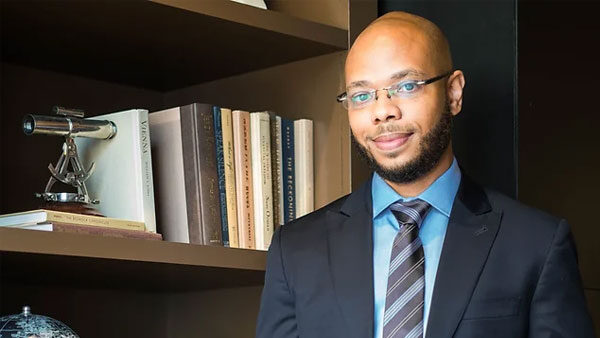Chase Cantrell brings a new perspective to real estate development with online course focused on helping residents invest in their own communities. Nearly a decade after the launch of Building Community Value, Cantrell is taking that same education and empowerment mindset beyond the boundaries of southeast Michigan with an open online course on real estate development-a course open to anyone with Internet access.
-
December 20, 2024
Detroit’s reparations task force now has until 2025 to make its report, but going slow with this challenging work may not be a bad thing
We are a team of University of Michigan-based scholars of political science and sociology specializing in public opinion and attitudes toward reparations. Our research provides important context for understanding the challenges Detroit’s reparations committee faces.
-
December 9, 2024
U-M closes on nearly 2.3 acres of land in Detroit
U-M closed on a parcel of land for $9.5 million. The parcel, strategically located across the street from the U-M Center for Innovation, is expected to support the center’s future needs. Part of the nearly 2.3-acre parcel will be used for a parking structure.
-
November 7, 2024
DNEP’s Community Tech Worker project expands with NSF grant
The Community Tech Worker program expands to help bolster small businesses after the School of Information was awarded a $750,000 grant from the National Science Foundation. The Detroit Neighborhood Entrepreneurs Project, which started the program on the city’s east side, has partnered with Live6 Alliance to make it available to small businesses on the city’s northwest side.
-
November 4, 2024
Architecture grad student awarded grant for anti-racism research
Abraham Alzoubi, M.Arch ‘25 was awarded a summer research grant by the U-M National Center for Institutional Diversity (NCID) to investigate the various land uses in Detroit and Palestine. It was one of 19 grants given to graduate students and teams at the University of Michigan through the provost-funded Anti-Racism Collaborative. Alzoubi plans to use the grant to fund field expeditions to Detroit and Palestine and learn more about the ongoing efforts of activists to fight against land commodification.
-
November 4, 2024
Beating the odds: Students at Detroit public schools are less depressed, anxious
The share of 8th-12th grade students reporting depression and anxiety symptoms fell below pre-pandemic levels in 2022-23 in the Detroit Public School Community District—which is the opposite of national trends.
-
October 30, 2024
Barbara Israel: Driven to give back
She’s the pioneering community-based participatory researcher whose work in developing collaborative partnerships has had a significant impact on the health and well-being of Detroit residents. Barbara Israel now commits to fostering future public health leaders as professor emerita of Health Behavior & Health Equity.
-
October 30, 2024
Introducing the 2024 David Bohnett Foundation Leadership and Public Service Fellows
First-year MPP students, Delaney McDermott (MPP/MPH ‘27) and Bradley Popovich (MPP ‘26) have been selected as the 2024 Bohnett Fellows at the Ford School of Public Policy. They will receive two years of in-state tuition support and a funded internship in the city of Detroit mayor’s office.
-
October 24, 2024
Innocence Clinic helps exonerate man more than 22 years after wrongful murder conviction
A judge has vacated the double murder conviction and sentence of Michigan Innocence Clinic client LaVone Hill, providing him the relief he has been seeking for more than 22 years. Hill was convicted in 2002—in part due to the police corruption—of two murders he did not commit.


